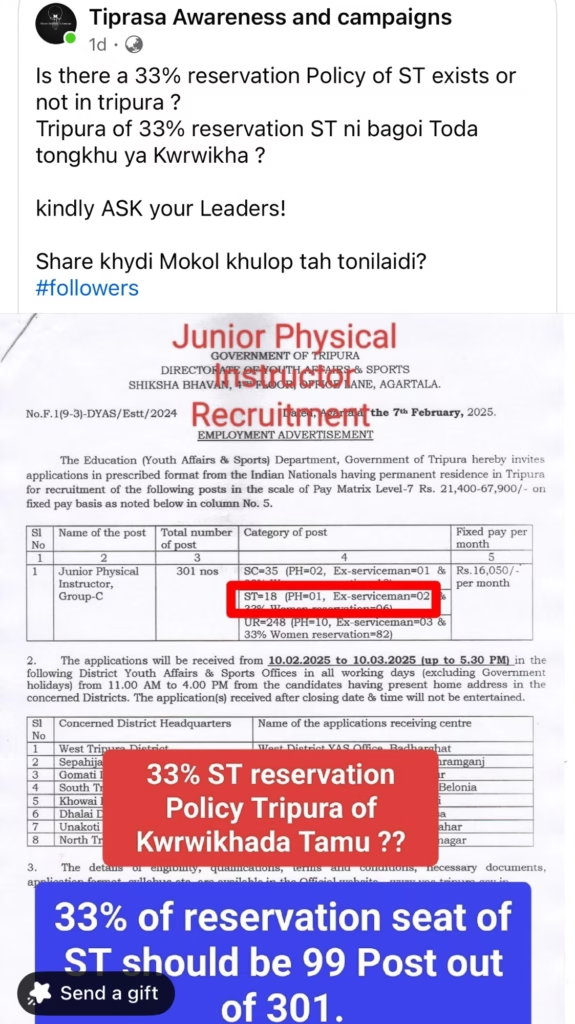Agartala, February 9: A major controversy has erupted in Tripura over the reservation policy for Scheduled Tribes (ST) in government jobs. The state’s Department of Youth Affairs & Sports recently issued a recruitment notification for 301 Junior Physical Instructor posts. However, only 18 of these positions have been reserved for ST candidates far below the legally mandated reservation percentage leading to widespread outrage on social media.
Reservation Policy vs. Reality
According to Tripura’s reservation laws, 31% of government job vacancies must be reserved for ST candidates. Based on this, out of 301 posts, at least 93 should have been allocated to ST applicants. However, the recruitment notice reserves only 18 posts for ST candidates, which accounts for approximately 6% a significant shortfall from the required 31%. This has sparked concerns among the Indigenous community, who feel their constitutional rights are being undermined.


Social Media Uproar
The discrepancy has ignited a wave of protests on social media, with many from the Indigenous community accusing the government of failing to uphold its reservation policies. Activists and community leaders argue that if the government does not adhere to its own reservation laws, the socio-economic development of ST communities will remain stagnant.
What Is the Government’s Stand?
So far, the Tripura government has not issued an official response to the controversy. Experts speculate that the lower number of ST-reserved posts in this particular recruitment drive may be an anomaly, but without clarification from the authorities, concerns remain high.
Experts Weigh In
Legal and policy experts emphasize that the Tripura Scheduled Castes and Scheduled Tribes (Reservation of Vacancies in Services and Posts) Act, 1991, clearly mandates a 31% reservation for STs. Any deviation from this law could be considered a violation of constitutional rights.
Indigenous Groups Prepare for Protest
Tribal organizations and activists in Tripura are preparing to escalate their protests if the issue is not addressed. They are demanding that the government rectify the discrepancy and ensure that ST reservation policies are strictly implemented in all future recruitments.
The ongoing controversy over ST reservations in Tripura’s government jobs highlights deeper issues of justice, equity, and constitutional rights for Indigenous communities. If the government does not take corrective measures soon, the protests may intensify, pushing the administration into a larger political and legal challenge.










